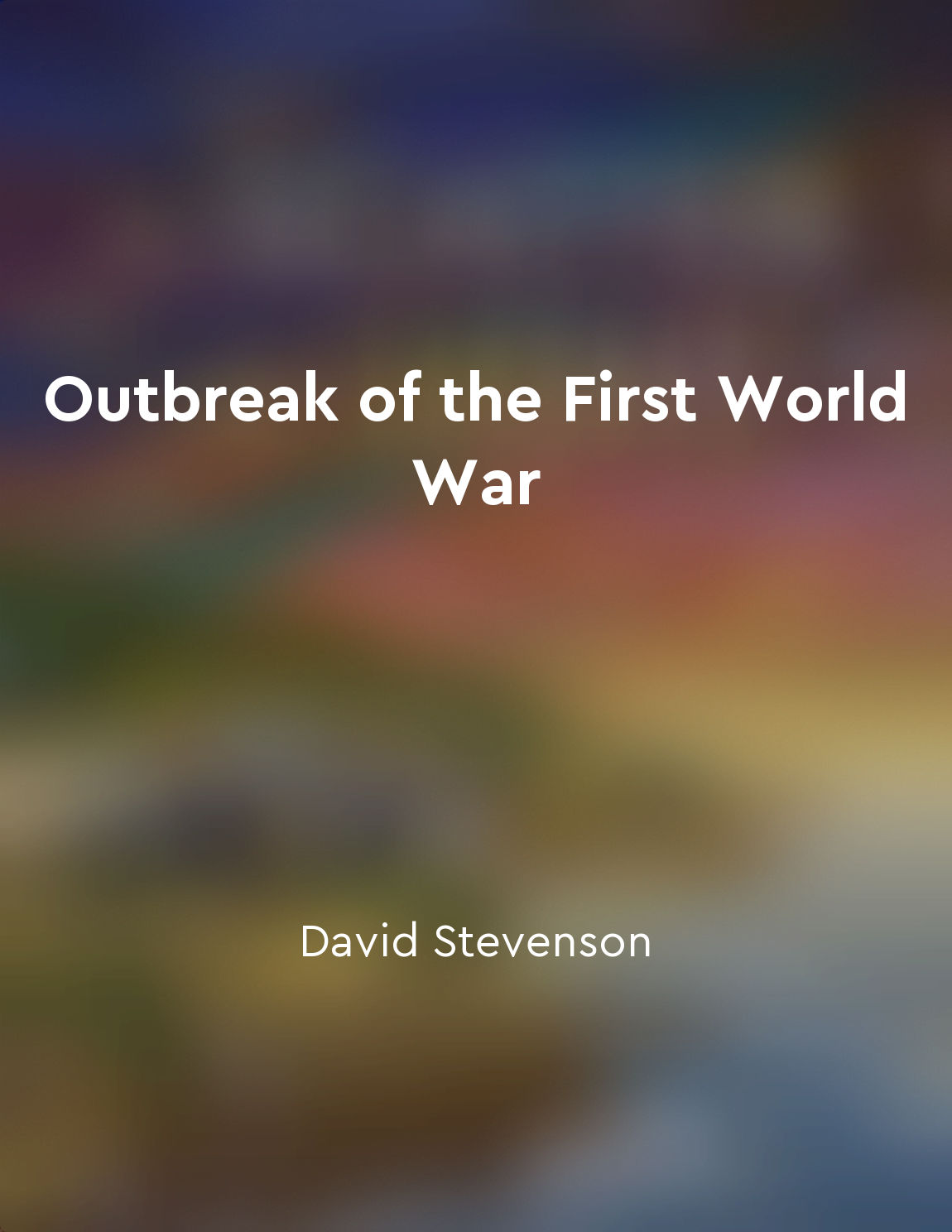Naval arms race exacerbates tensions from "summary" of The Origins of the First World War by Annika Mombauer
The naval arms race between Britain and Germany was a significant factor in exacerbating tensions in the years leading up to the First World War. Both countries engaged in a competition to build up their naval fleets, each trying to outdo the other in terms of size and strength. This rivalry created a sense of mistrust and suspicion between the two nations, as each saw the other as a potential threat to their maritime interests. Britain had long been the dominant naval power in the world, with a vast empire to protect and control. However, Germany's decision to build up its own navy challenged Britain's supremacy and raised concerns about the security of British shipping lanes and trade routes. The British responded by increasing their naval spending and accelerating the construction of new battleships, leading to a dangerous escalation in the arms race. The naval arms race also had wider implications for the European balance of power. Other countries, such as France and Russia, felt compelled to bolster their own naval forces in order to keep up with the British and German fleets. This further heightened tensions between the major powers and contributed to a sense of unease and insecurity across the continent. The aggressive pursuit of naval superiority by Britain and Germany had a destabilizing effect on international relations. It created a climate of competition and rivalry that made conflict more likely, as each side sought to gain the upper hand in the event of a confrontation. The arms race served to increase the sense of militarism and nationalism in Europe, laying the groundwork for the outbreak of war in 1914.- The naval arms race between Britain and Germany played a crucial role in exacerbating tensions in the years leading up to the First World War. The competition for naval supremacy created a climate of suspicion and insecurity that contributed to the overall atmosphere of crisis in Europe. The arms race was a key factor in the chain of events that ultimately led to the outbreak of war in 1914.
Similar Posts
The Enlightenment encouraged reason and progress
The Enlightenment era was a period in history when people began to question traditional beliefs and systems in favor of reason ...
Technological advances increase the destructiveness of war
The development of technology played a significant role in shaping the nature of warfare during the First World War. The introd...
The assassination of Archduke Franz Ferdinand of Austria was a catalyst for war
The shot that killed Archduke Franz Ferdinand of Austria was like a match that ignited a powder keg in Europe. The assassinatio...
Misunderstandings among world powers led to the outbreak of World War I
The misunderstandings among world powers in the early 20th century were like a tangled web of conflicting interests and ambitio...
The future holds uncertainty and possibility
The future, a vast realm of uncertainties and possibilities, looms before us like an uncharted territory waiting to be explored...
Naval arms race exacerbates tensions
The naval arms race between Britain and Germany was a significant factor in exacerbating tensions in the years leading up to th...

Treaty of Versailles
The Treaty of Versailles, signed on June 28, 1919, was a peace settlement that officially ended World War I. The treaty was a p...

Assassination of Archduke Ferdinand
On June 28, 1914, Archduke Franz Ferdinand of Austria was assassinated in Sarajevo, the capital of Bosnia. The archduke, heir t...

